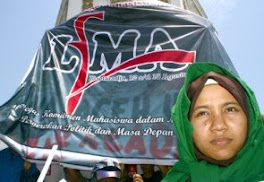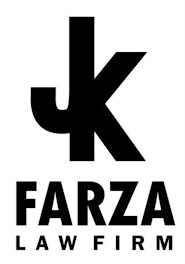
World Relief in Indonesia is looking for a short-term Consultant –
Team Leader to conduct a post-project evaluation of two Disaster
Response programs in Indonesia – the Bereneut-Leungah Disaster
Recovery (BLDR) project, and the Java Earthquake Response projects.
Attached is the summary Terms of Reference.
WE are inviting applicants to submit their Letters of Interest to
hrindonesia@wr.org by end of business day on August 7, 2008. Please
indicate “Evaluation Consultant Application” on the Subject line.
The following attachments to the Letter of Interest should also be
submitted:
1. CV’s of the Evaluation Team Leader and the Watsan/Shelter
consultant;
2. Total itemized consultancy fees
World Relief will contact shortlisted candidates after August 10 and
will provide details and relevant documents.
Yours truly,
Christine
Terms of Reference
Java Earthquake Response Project-End Evaluation
I.General Information
Type of contract: Short-term consultancy contract
Duration of the assignment: 8 weeks
Expected places of travel: Gantiwarno Subdistrict, Central Java
Aceh Besar Subdistrict, NAD
Reports to: WR Country
Director
II.Background
World Relief reentered Indonesia in 2005, right after the Indian
Ocean tsunami of December 24, 2004. It launched disaster response
projects, which ranged from relief to reconstruction and
rehabilitation. A number of these projects have been completed and
have undergone post project evaluations. The latest, Bereneut and
Leungah Disaster Recovery (BLDR) Project that covers 5 villages in
the subdistrict of Selimeum, has ended its activities in July 2008,
and is slated for administrative closure in August 2008. The
project was implemented with a Disaster Risk Reduction framework, in
5 components: 1) Sustainable Fishing Livelihood Recovery; 2) Farm-to-
market road construction/opening; 3) Bereneut water distribution
facility; 4) Community Reforestation; and 5) Mainstreaming disaster
mitigation and preparedness into the Subdistrict local government.
While implementing its tsunami recovery projects in Aceh and Nias,
the Java Earthquake of 2006 occurred, and World Relief responded to
it with relief and rehabilitation projects as well, albeit with much
less funding than the tsunami projects. There are several components
to this reponse, as follows: 1) Emergency Relief – food, tents and
tarpaulins, iterative needs assessments; 2) Transitional Housing,
which implemented the “core shelter” strategy in Muruh Village and
relied heavily on community labor through the local tradition
of “gotong royong”; 3) Water and Sanitation – 500 family latrines in
Gantiwarno subdistrict’s communities. The project’s major
activities had been completed in January 2008, and administrative
closure was done in March 2008.
A project-end evaluation of the two projects is required. The
projects’ objectives, outputs, specific activities, inputs and
indicators are outlined in detail in the logical frameworks
(logframe) and proposals. These two documents will be the key
reference/working documents during the evaluation.
III.Objectives and Scope of Work
The main objective of the evaluation is to assess the effectiveness
and quality of World Relief’s response to the Aceh tsunami, through
the BLDR Project, and to the Java Earthquake disaster of 2006,
through its various relief and rehabilitation activities.
Specifically, the evaluation will:
-Objectively assess accomplishment against the stated
objectives and target, identifying good practices as well as the
main constraints and barriers to achieving desired results;
-Evaluate the project’s performance against the objectives
and provide recommendations on improving implementation and outputs
for future programs; (also taking into consideration the evaluations
of other WR tsunami projects in Aceh and Nias).
-Use established verifiable indicators (based on the project
logframe) to assess project impacts and benefits to beneficiaries;
-Assess the quality and effectiveness of engagement by World
Relief with its local partners and provide recommendations that can
be used in the development of its partner capacity building
strategies in Indonesia.
-Evaluate project monitoring and reporting processes and make
recommendations for WR Indonesia projects in the future. (taking
into consideration compliance with international humanitarian
standards particularly the IFRC Code of Conduct, Sphere, People in
Aid, and HAP-I.
IV.Accountabilities and Responsibilities
The World Relief Country Director will be the evaluation manager for
the two project evaluations. The Consultant – Evaluation Team Leader
will report to the Country Director, who is responsible for:
-Overall responsibility and accountability for the evaluation;
-Guidance throughout all phases of execution;
-Approval of all deliverables.
The Consultant – Evaluation Team Leader is responsible for:
-Conducting the evaluation;
-Providing orientation and management to the evaluation team
-The day-to-day management of operations;
-Regular progress reporting to the Country Director;
-The analysis of results;
-The production of deliverables in accordance with
contractual requirements.
V.Evaluation Process
The consultant will prepare an evaluation work plan based on a draft
provided by World Relief, that will operationalize and direct the
evaluation. The work plan will describe how the evaluation is to be
carried out, bringing refinements, specificity and elaboration to
this terms of reference. It will be approved by WR Country Director
and act as the agreement between parties for how the evaluation is
to be conducted.
The evaluation work plan will address the following reporting
elements:
•Overview
•Expectations of Evaluation
•Roles and Responsibilities
•Evaluation Methodology
•Evaluation Framework and Key Issues
•Data Collection and Analysis
•Reporting
•Work Scheduling
Field Visits and Data Collection
The evaluation will include quantitative and qualitative data
collection in the project areas.
Quantitative Data Collection: 2 weeks
The consultant will devise the sampling methodology for quantitative
data collection. The evaluation will include site visits to the
project areas, with support of WR staff, to collect information in
accordance with the requirements stipulated in the Evaluation Plan.
Qualitative Data Collection: 2 weeks
The consultant will review and finalize the focus group discussion
and key informant interview protocols for qualitative data
collection. The evaluation will include organization of focus groups
discussions and key informant interviews in the project areas, with
support of WR staff, to collect information in accordance with the
requirements stipulated in the Evaluation plan.
Evaluation Report
The consultant will prepare an evaluation report that describes the
evaluation and puts forward the findings, recommendations and
lessons learned. The presentation of results is to be intrinsically
linked to the key issues, establishing a flow of logic development
derived from the information collected.
VI.Deliverables
The Consultant – Team Leader will prepare: 1) an evaluation work
plan; 2) an evaluation report.
These deliverables are to be prepared in Bahasa Indonesia or in
English and submitted to the WR Country Director electronically via
e-mail and/or on diskette, in Word format and in 3 hard copies.
General timelines are as follows:
Activity Deadline
Contract Signing August 11
Draft Evaluation Work Plan Within 5 days after contract signing
Evaluation Work Plan Within 2 days of receiving WR’s comments on
the draft workplan.
Tentatively : August 22
Mission to Jogjakarta August 24-30
Mission to Aceh September 1-7
Draft Evaluation Report Within one week of returning from mission
Final Evaluation Report
(including abstract/executive summary) Within one week of receiving
WR’s comments on draft report.
Tentatively: September 30
VII.Evaluator Qualifications
-Extensive experience in project management and undertaking
evaluations and assessments;
-Experience in disaster recovery programs, particularly in
livelihood/DRR/shelter reconstruction/watsan, would be an asset;
-Demonstrated technical capacity to initiate, supervise the
activities, guide the team, staff and partners on the evaluation
work, and write a report;
-Fluent in Bahasa Indonesia; knowledge of English and Bahasa
Aceh would be an asset.
























Tidak ada komentar:
Posting Komentar